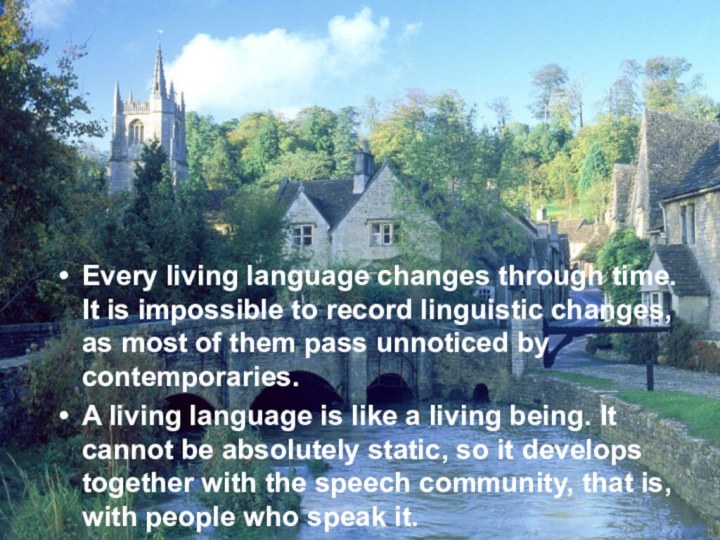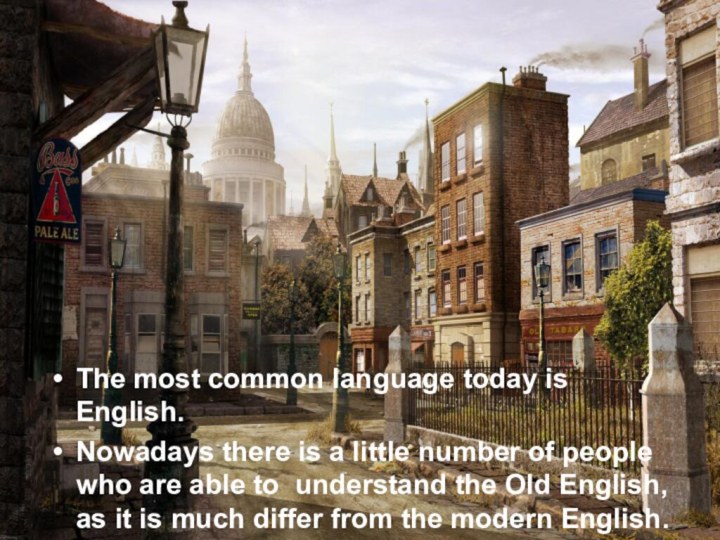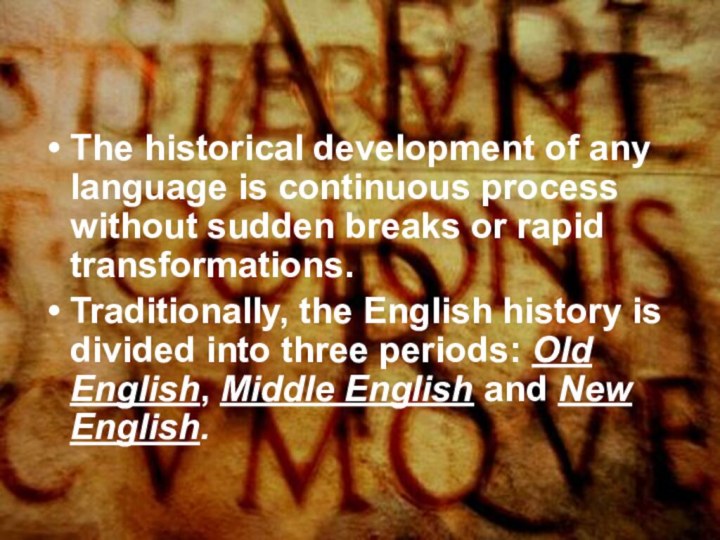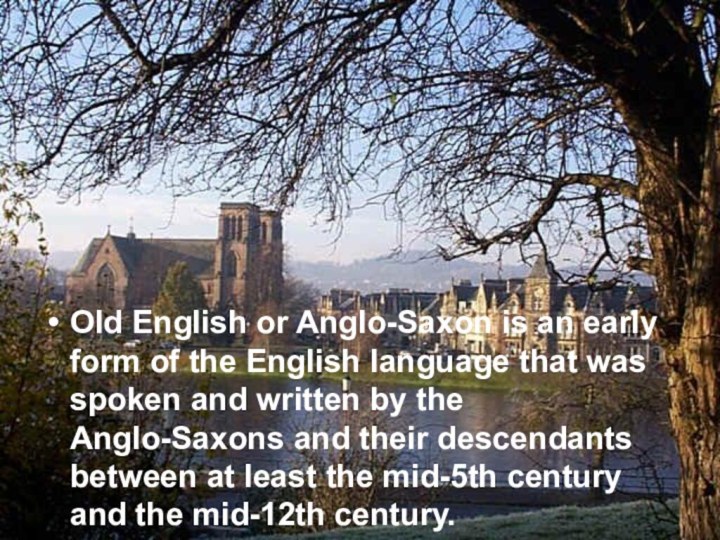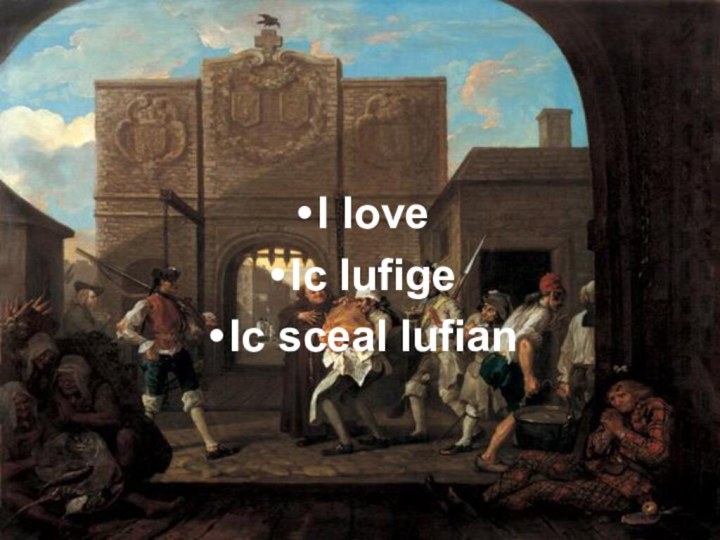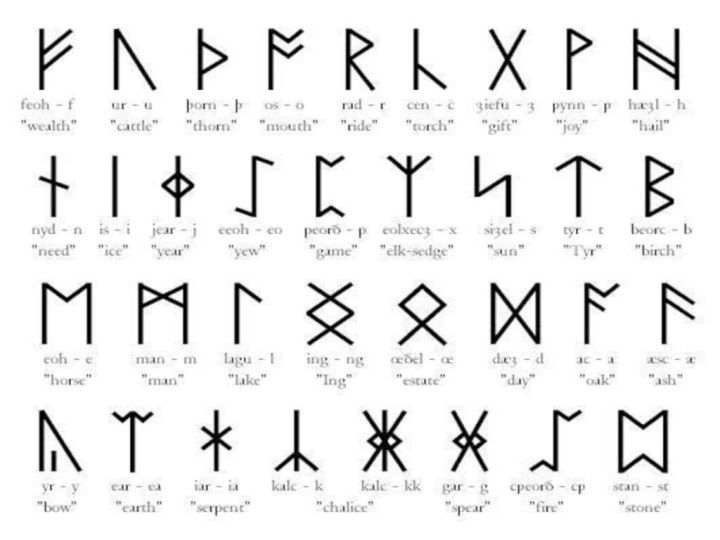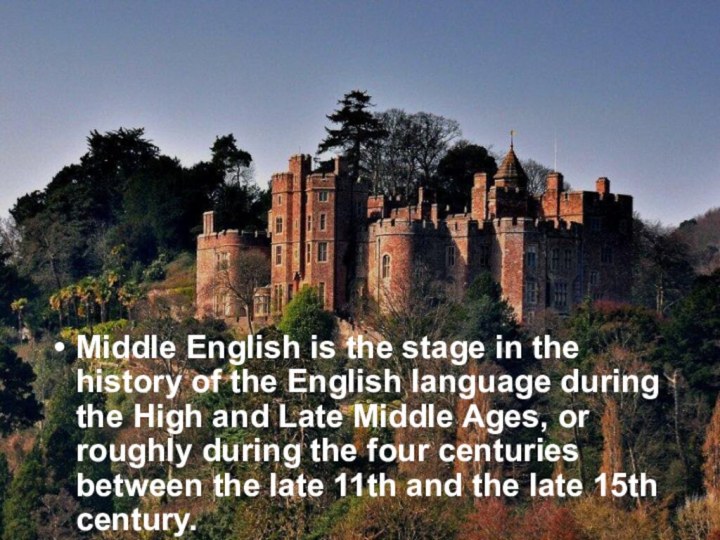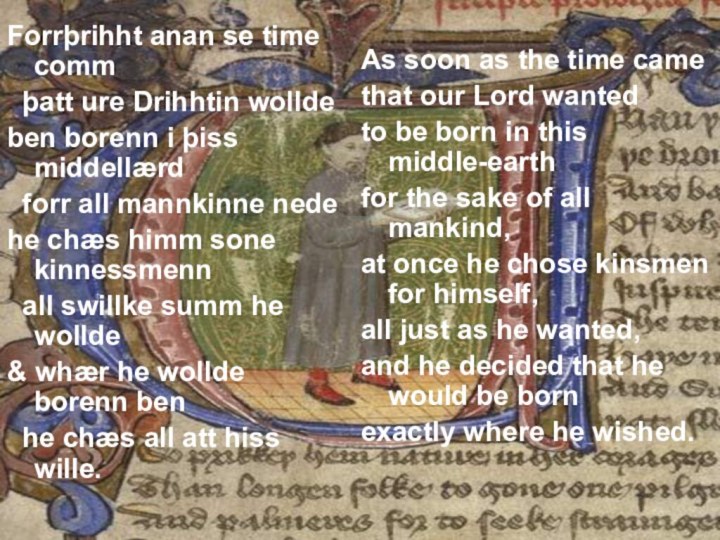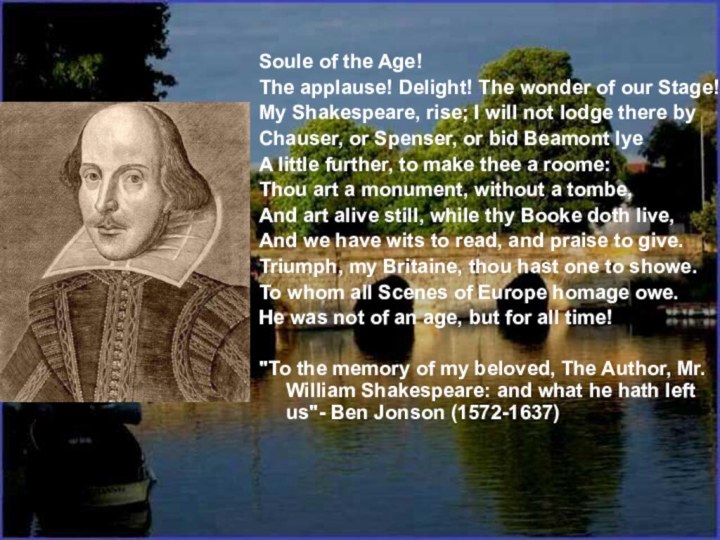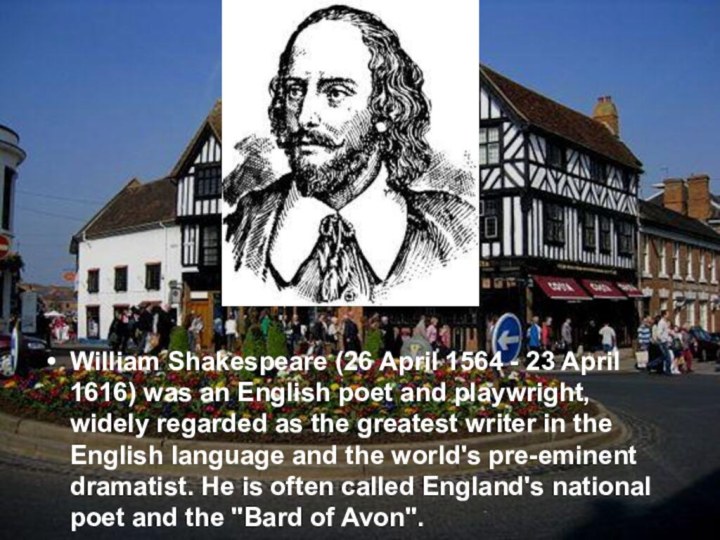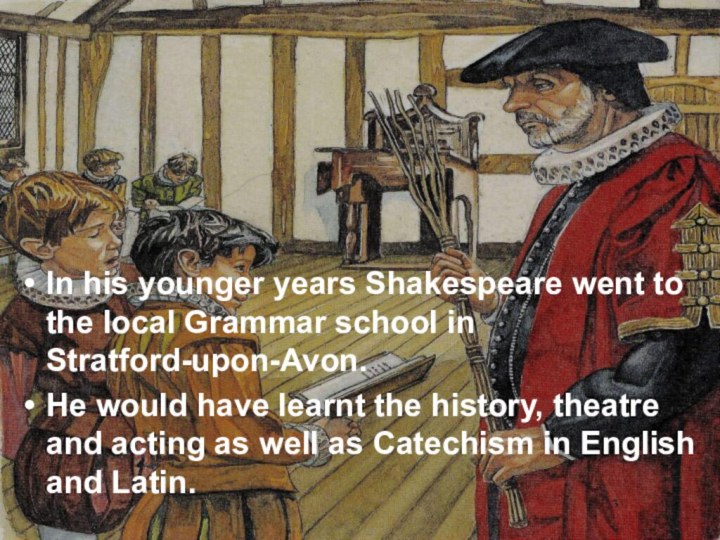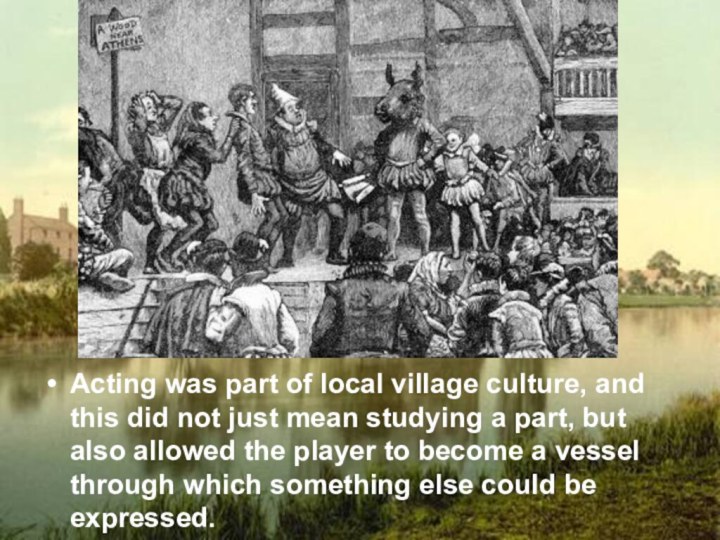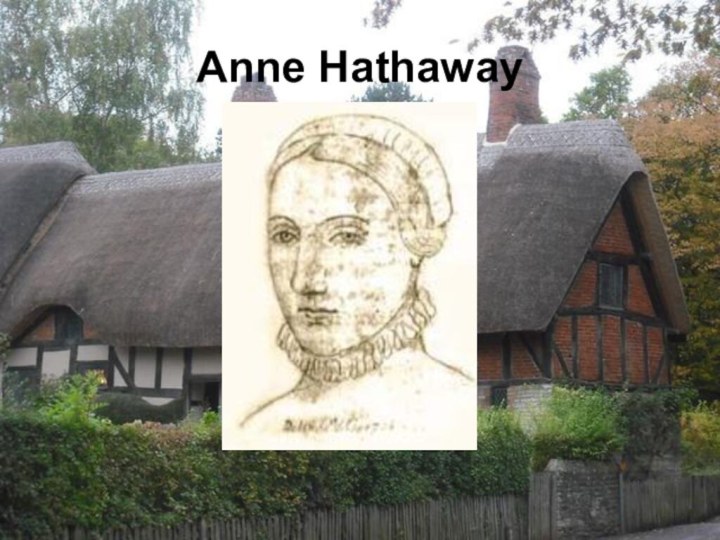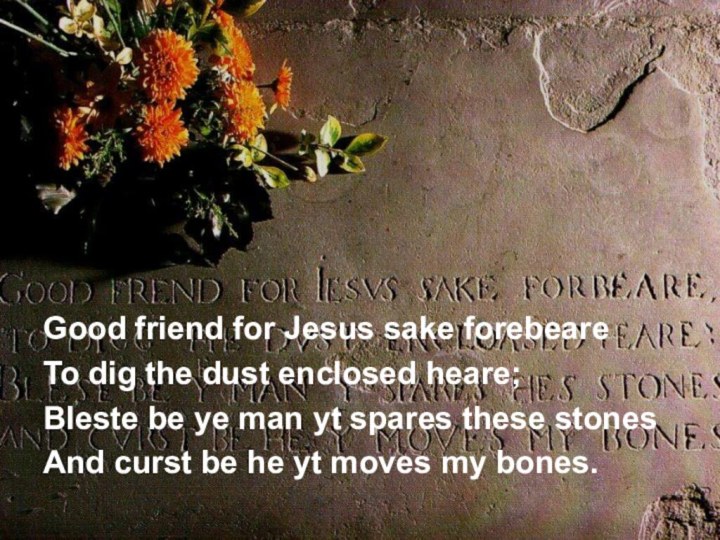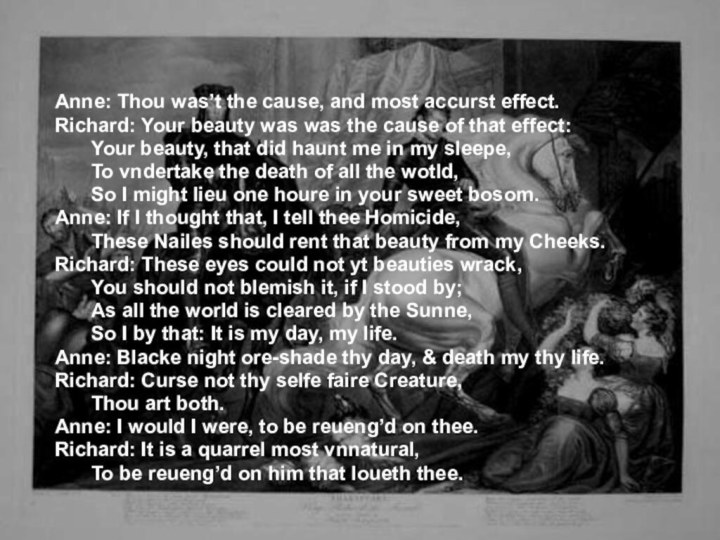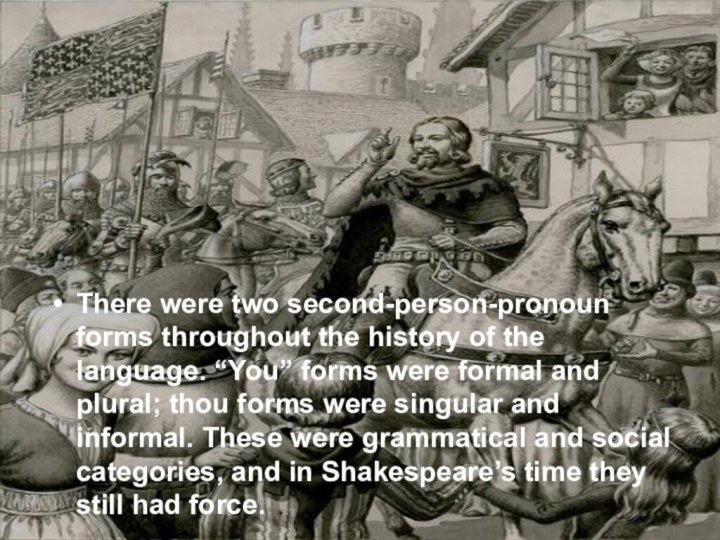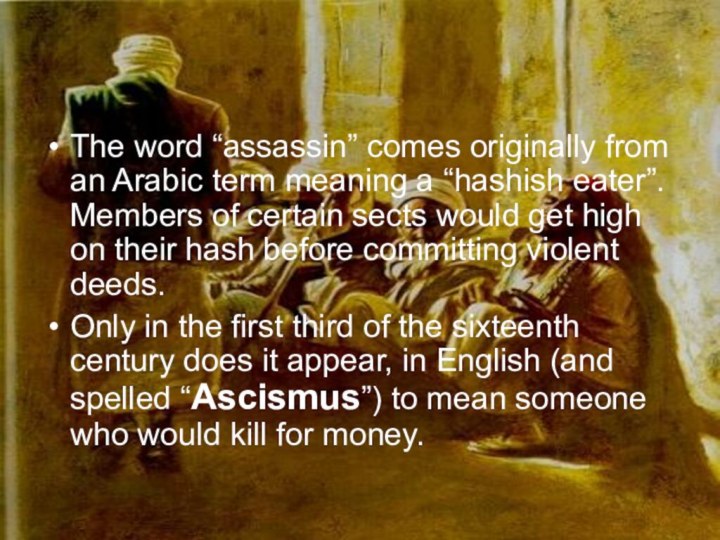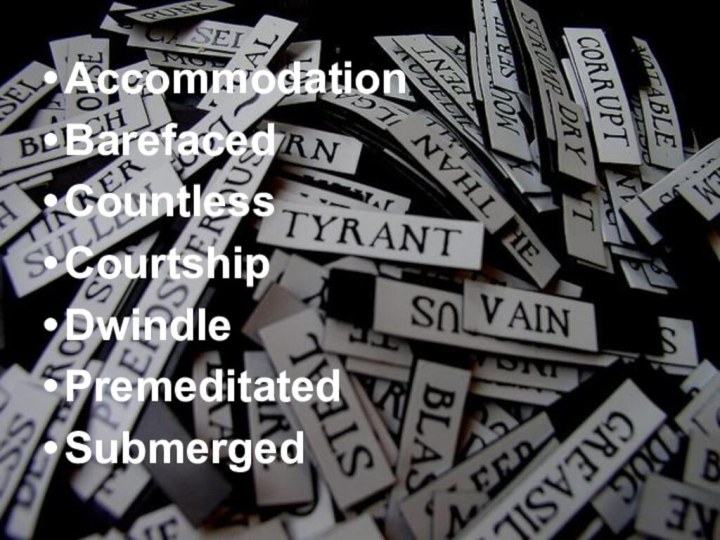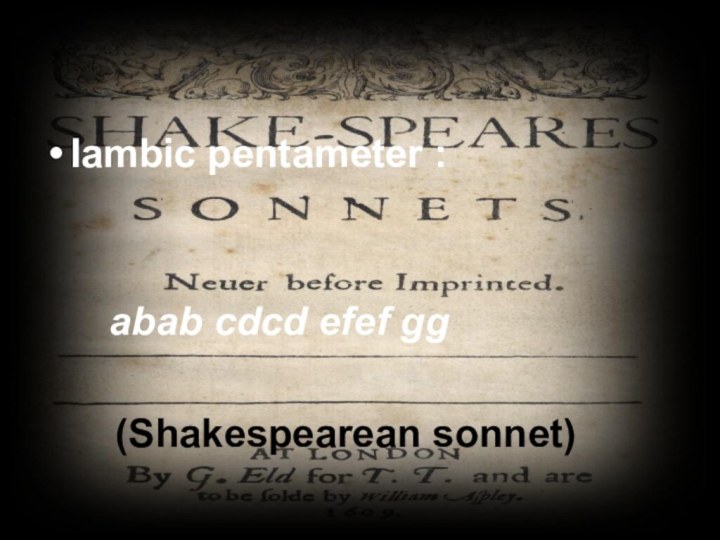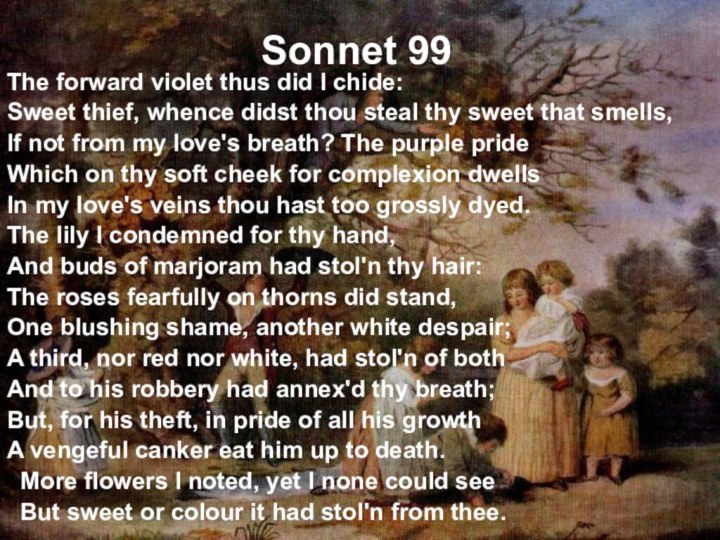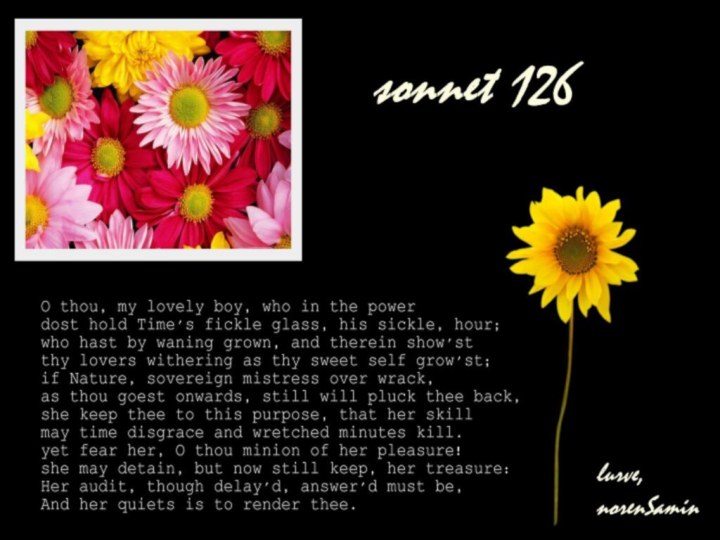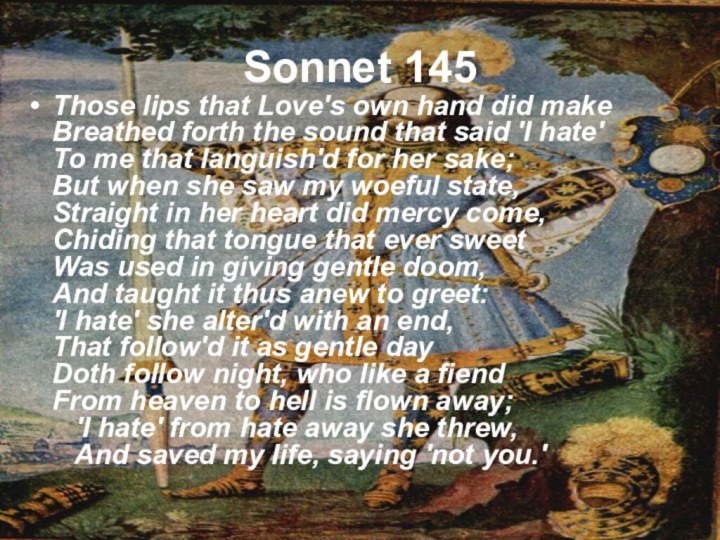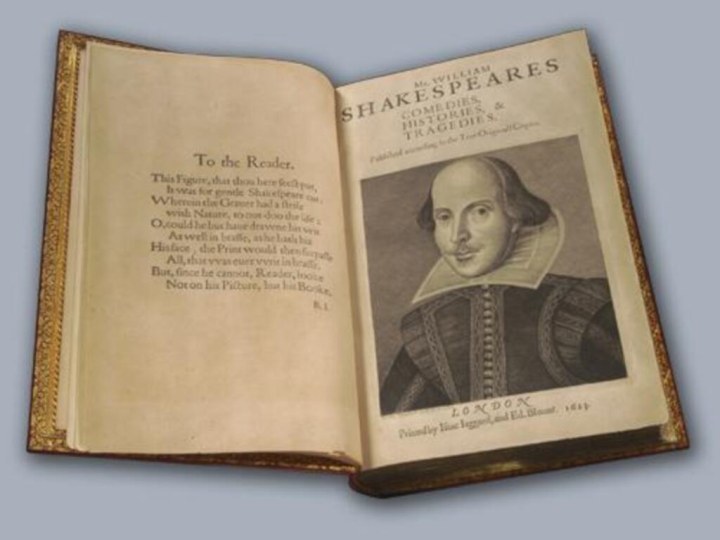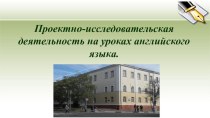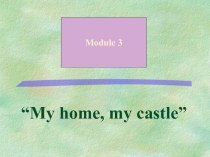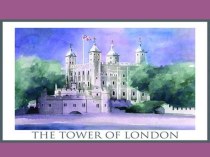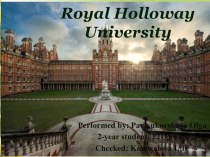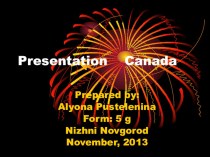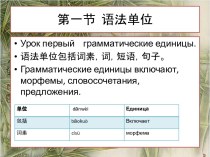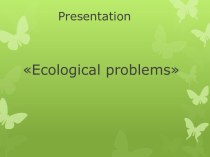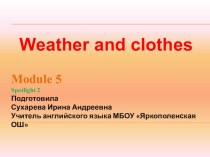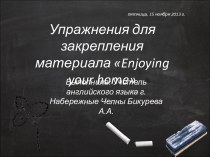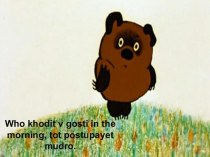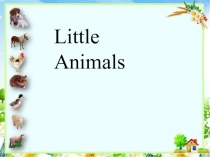Слайд 2
Every living language changes through time. It is
impossible to record linguistic changes, as most of them
pass unnoticed by contemporaries.
A living language is like a living being. It cannot be absolutely static, so it develops together with the speech community, that is, with people who speak it.
Слайд 3
The most common language today is English.
Nowadays there
is a little number of people who are able
to understand the Old English, as it is much differ from the modern English.
Слайд 4
The historical development of any language is continuous
process without sudden breaks or rapid transformations.
Traditionally, the English
history is divided into three periods: Old English, Middle English and New English.
Слайд 5
Old English or Anglo-Saxon is an early form
of the English language that was spoken and written
by the Anglo-Saxons and their descendants between at least the mid-5th century and the mid-12th century.
Слайд 6
I love
Ic lufige
Ic sceal lufian
Слайд 8
Hwæt! wē Gār-Dena in ġeār-dagum,
þēod-cyninga, þrym ġefrūnon,
hū ðā
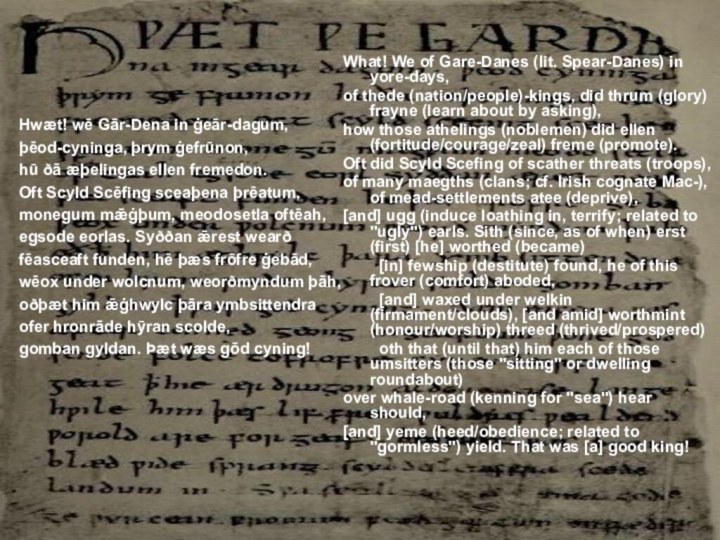
æþelingas ellen fremedon.
Oft Scyld Scēfing sceaþena þrēatum,
monegum mǣġþum, meodosetla
oftēah,
egsode eorlas. Syððan ǣrest wearð
fēasceaft funden, hē þæs frōfre ġebād,
wēox under wolcnum, weorðmyndum þāh,
oðþæt him ǣġhwylc þāra ymbsittendra
ofer hronrāde hȳran scolde,
gomban gyldan. Þæt wæs gōd cyning!
What! We of Gare-Danes (lit. Spear-Danes) in yore-days,
of thede (nation/people)-kings, did thrum (glory) frayne (learn about by asking),
how those athelings (noblemen) did ellen (fortitude/courage/zeal) freme (promote).
Oft did Scyld Scefing of scather threats (troops),
of many maegths (clans; cf. Irish cognate Mac-), of mead-settlements atee (deprive),
[and] ugg (induce loathing in, terrify; related to "ugly") earls. Sith (since, as of when) erst (first) [he] worthed (became)
[in] fewship (destitute) found, he of this frover (comfort) aboded,
[and] waxed under welkin (firmament/clouds), [and amid] worthmint (honour/worship) threed (thrived/prospered)
oth that (until that) him each of those umsitters (those "sitting" or dwelling roundabout)
over whale-road (kenning for "sea") hear should,
[and] yeme (heed/obedience; related to "gormless") yield. That was [a] good king!
Слайд 9
Middle English is the stage in the history
of the English language during the High and Late
Middle Ages, or roughly during the four centuries between the late 11th and the late 15th century.
Слайд 10
Forrþrihht anan se time comm
þatt ure Drihhtin
wollde
ben borenn i þiss middellærd
forr all mannkinne nede
he
chæs himm sone kinnessmenn
all swillke summ he wollde
& whær he wollde borenn ben
he chæs all att hiss wille.
As soon as the time came
that our Lord wanted
to be born in this middle-earth
for the sake of all mankind,
at once he chose kinsmen for himself,
all just as he wanted,
and he decided that he would be born
exactly where he wished.
Слайд 11
In the course of Middle English the grammatical
system of the language underwent profound alteration.
In Middle
English grammatical forms could also be built in the analytical way, with the help of auxiliary words.
Слайд 12
Soule of the Age!
The applause! Delight! The wonder
of our Stage!
My Shakespeare, rise; I will not lodge
there by
Chauser, or Spenser, or bid Beamont lye
A little further, to make thee a roome:
Thou art a monument, without a tombe,
And art alive still, while thy Booke doth live,
And we have wits to read, and praise to give.
Triumph, my Britaine, thou hast one to showe.
To whom all Scenes of Europe homage owe.
He was not of an age, but for all time!
"To the memory of my beloved, The Author, Mr. William Shakespeare: and what he hath left us"- Ben Jonson (1572-1637)
Слайд 13
William Shakespeare (26 April 1564 - 23 April
1616) was an English poet and playwright, widely regarded
as the greatest writer in the English language and the world's pre-eminent dramatist. He is often called England's national poet and the "Bard of Avon".
Слайд 14
In his younger years Shakespeare went to the
local Grammar school in Stratford-upon-Avon.
He would have learnt the
history, theatre and acting as well as Catechism in English and Latin.
Слайд 15
Acting was part of local village culture, and
this did not just mean studying a part, but
also allowed the player to become a vessel through which something else could be expressed.
Слайд 18
Good friend for Jesus sake forebeare
To dig the
dust enclosed heare;
Bleste be ye man yt spares these
stones
And curst be he yt moves my bones.
Слайд 19
Anne: Thou was’t the cause, and most accurst
effect.
Richard: Your beauty was was the cause of that
effect:
Your beauty, that did haunt me in my sleepe,
To vndertake the death of all the wotld,
So I might lieu one houre in your sweet bosom.
Anne: If I thought that, I tell thee Homicide,
These Nailes should rent that beauty from my Cheeks.
Richard: These eyes could not yt beauties wrack,
You should not blemish it, if I stood by;
As all the world is cleared by the Sunne,
So I by that: It is my day, my life.
Anne: Blacke night ore-shade thy day, & death my thy life.
Richard: Curse not thy selfe faire Creature,
Thou art both.
Anne: I would I were, to be reueng’d on thee.
Richard: It is a quarrel most vnnatural,
To be reueng’d on him that loueth thee.
Слайд 20
There were two second-person-pronoun forms throughout the history
of the language. “You” forms were formal and plural;
thou forms were singular and informal. These were grammatical and social categories, and in Shakespeare’s time they still had force.
Слайд 21
The word “assassin” comes originally from an Arabic
term meaning a “hashish eater”. Members of certain sects
would get high on their hash before committing violent deeds.
Only in the first third of the sixteenth century does it appear, in English (and spelled “Ascismus”) to mean someone who would kill for money.
Слайд 22
If it were done when ‘tis done then
‘twere well
If it were done quickly. If th’ assassination
Could
trammel up the consequence, and catch
With his surcease success, that but this blow
Might be the be-all and the end-all – here,
But here upon this bank and shoal of time,
We’d jump the life to come.
Слайд 23
Accommodation
Barefaced
Countless
Courtship
Dwindle
Premeditated
Submerged
Слайд 24
Iambic pentameter :
abab cdcd efef
gg
(Shakespearean sonnet)
Слайд 25
Sonnet 99
The forward violet thus did I chide:
Sweet
thief, whence didst thou steal thy sweet that smells,
If
not from my love's breath? The purple pride
Which on thy soft cheek for complexion dwells
In my love's veins thou hast too grossly dyed.
The lily I condemned for thy hand,
And buds of marjoram had stol'n thy hair:
The roses fearfully on thorns did stand,
One blushing shame, another white despair;
A third, nor red nor white, had stol'n of both
And to his robbery had annex'd thy breath;
But, for his theft, in pride of all his growth
A vengeful canker eat him up to death.
More flowers I noted, yet I none could see
But sweet or colour it had stol'n from thee.
Слайд 27
Sonnet 145
Those lips that Love's own hand did
make
Breathed forth the sound that said 'I hate'
To
me that languish'd for her sake;
But when she saw my woeful state,
Straight in her heart did mercy come,
Chiding that tongue that ever sweet
Was used in giving gentle doom,
And taught it thus anew to greet:
'I hate' she alter'd with an end,
That follow'd it as gentle day
Doth follow night, who like a fiend
From heaven to hell is flown away;
'I hate' from hate away she threw,
And saved my life, saying 'not you.'

